Welcome back to This Week in Apps, the TechCrunch series* that recaps the latest OS news, the applications they support and the money that flows through it all.
The app industry is as hot as ever, with a record 204 billion downloads and $120 billion in consumer spending in 2019. People are now spending three hours and 40 minutes per day using apps, rivaling TV. Apps aren’t just a way to pass idle hours — they’re a big business. In 2019, mobile-first companies had a combined $544 billion valuation, 6.5x higher than those without a mobile focus.
In this series, we help you keep up with the latest news from the world of apps, delivered on a weekly basis.
This week, we’re looking at the political intersections between the app stores and international relations, with news of app censorship in Hong Kong and the potential for a TikTok ban in the U.S. and how rivals are preparing their alternatives. There’s other big news around regulations and lawsuits hitting this week, including one over Firebase-powered app tracking and another that changes how app marketplaces have to operate in the EU. For a bit of fun, we’re also taking a look at some of the new emoji shipping in iOS and Android later this year.
* This Week in Apps was previously available only to Extra Crunch subscribers. Starting this week, we’re making these reports available to all TechCrunch readers.
HeadlinesOver 2,500 games removed from China’s App Store in early July
Image Credits: Sensor Tower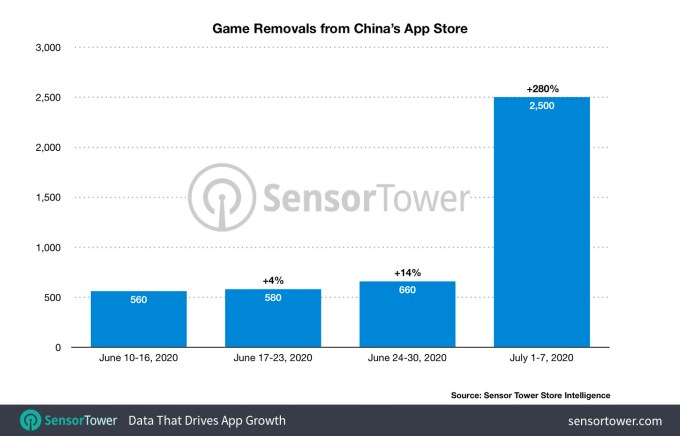
More than 2,500 mobile games have been removed from China’s App Store during the first week of July, according to a new report from app store intelligence firm Sensor Tower. The removals were expected due to a planned crackdown on unlicensed games, but this data is the first to demonstrate the impact on the app economy. For comparison, the July figure is four times the number of games that were delisted during the first week of April, five times higher than the first week of May and more than four times higher than the first week of June. Combined, the removed games generated $34.7 million in lifetime gross revenue, with one game accounting for more than $10 million and six that earned more than $1 million. More details are on TechCrunch here.
Longer-term, the fallout from the crackdown may show up in Apple’s bottom line as China has been the most lucrative mobile games market in the world. In 2019, games on China’s App Store generated an estimated $12.6 billion, or 33.2% of all global games spending on the Apple App Store.
Snap launches a developer program for app makers

Snap this week debuted a 13-week remote program, Yellow Collabs, focused on helping developers create deeper Snap Kit integrations. The company wants more developers to integrate its technology into their own apps. Through the new program, companies can choose to work with Snap to integrate the full Snap Kit platform, or they can narrow in on verticals like Snap Minis, Dynamic Lenses, Scan or Snap ML features. The program will run September 21-December 18 this year. Snap had earlier tried to get its technology in front of smaller startups by way of its Yellow accelerator. But this program hadn’t required integrations. The new effort puts a more direct focus on finding developers who want to build in partnership with Snap.
Microsoft xCloud to launch in September with 100+ titles
Image Credits: Microsoft
Microsoft’s xCloud — a cross-platform game streaming service and a competitor to Google’s Stadia — is arriving in September. The company this week announced a round of updates for the new service, which allows Xbox users to play their games on mobile devices or even move between consoles and mobile as they continue a game. The blog post says xCloud will first be offered to Xbox Game Pass Ultimate subscribers, a $15/mo service, and will include more than 100 Game Pass titles at launch. Over time, the service will become more broadly available.
The growing trend of moving between devices to play favorite games has already led to mobile hits like Fortnite, Minecraft, Roblox and others. For game developers, this trend matters to the bottom line, as mobile gaming’s lead over consoles and PC has been growing in recent years.
Data from App Annie and IDC indicates that mobile gaming first overtook both home game consoles and PC and Mac gaming for consumer spend in 2014. But in 2020, mobile is extending its lead to more than 2.8x over desktop gaming and 3.1x more than home game consoles. In other words, console makers have to figure out how to bring the mobile market into the fold because that’s where consumers are spending the majority of their money.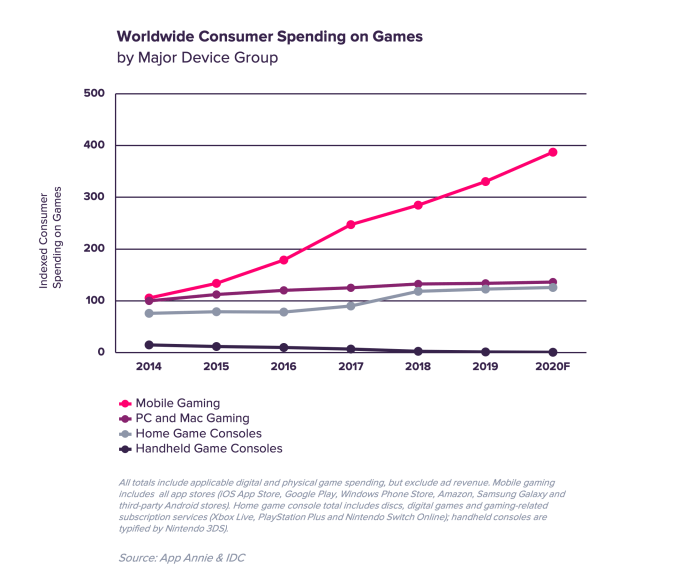
Image Credits: App Annie/IDCApple updates coding technology to replace non-inclusive language
Apple on Thursday announced it’s now working to remove and replace non-inclusive language across their developer ecosystem, including within Xcode, platform APIs, documentation and open source projects. The changes began on June 22 with its beta software, including iOS 14, and related developer documentation. For example, it will now replace words like “whitelist” and “blacklist” with “allow list” and “deny list.” The word “main” will take the place of “master” in the default SCM branch in Xcode 12. The word “Black,” when referring to ethnicity or cultural identity, will now be capitalized. These and other changes are available in Apple’s updated Style Guide.
New regulations in EU limit Apple’s and Google’s power over apps
On July 12, a new EU regulation came into effect that creates more rules around why and when apps are removed from their marketplaces, and more. The platforms will now have to provide 30 days notice to publishers before removing apps and terminating services, allowing developers the time to appeal or make changes to their software to come into compliance with the violation or violations in question. That means the platforms won’t be able to just ban apps and pull them down with no warning or explanation — unless the app involves illicit or inappropriate content, safety concerns, counterfeiting, fraud, malware, spam or it has suffered a data breach, MacRumors reported.
Highlights:
• Mandatory 30 days notice before app can be removed from the App Store by Apple
• Apple needs to disclose any preferential treatment it gives to big developers & publishers
• Apple must have an external mediator for disputes that can't be resolved by App Review https://t.co/vC2aCyCPzu
— Steve Troughton-Smith (@stroughtonsmith) July 14, 2020
The platforms also have to provide more insight into rankings and explain how “trending” apps are chosen, disclose any differentiated treatment between sellers (like better deals that large publishers receive) and share information about their rules and terms in “plain and intelligible language.” Platforms will also have to offer third-party mediation for disputes that can’t be resolved through an app review process.
The regulations apply to platform owners who cater to businesses that sell products through their marketplaces. Apple and Google are large examples of this, but the rules could also apply to Amazon and Valve, notes Macworld.
The regulation goes into effect as both Apple and Google are under scrutiny in the U.S. for anti-competitive behavior. Apple, in particular, has been increasingly held accountable for the way it wields power over its App Store where it takes commissions on businesses — including those it competes with — and forces developers to offer Apple’s own in-app purchase system, when the developers have something to sell.
Microsoft and Google team up on PWAs
Image Credits: PWABuilder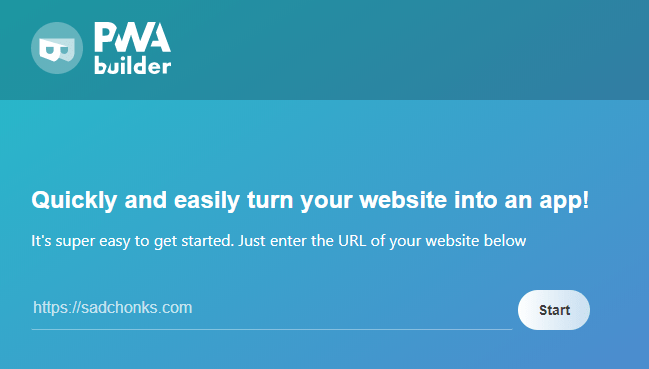
Microsoft’s PWABuilder, an open-source developer tool for building PWAs and Google’s Bubblewrap, a command line and utility for generating Play Store packages from PWAs announced this week they’re working together to help developers publish PWAs in the Google Play Store. Now, PWAs packaged for Google Play via PWABuilder will support the new web shortcuts standard. In addition, PWABuilder now supports the full range of trusted web activity options to make apps better on Android devices. From the PWABuilder, developers can customize the appearance of the Android status bar and nav bar in a PWA, customize the Android splash screen, change their launcher name, use an existing signing key, utilize deeper push notification support, configure their package’s ID and versioning, fallback behavior and more.
Google launches new Kotlin Basics course
Apple isn’t the only one rolling out free educational training for would-be mobile developers. This week, Google announced the launch of Android Basics in Kotlin, a new online course for people without programming experience to learn how to build Android apps. Today, 60% of professional Android developers use Kotlin, and Kotlin powers 70% of Google Play’s top 1,000 apps. The course complements Google’s existing Android Basics curriculum, launched in 2016, which aims to teach programming to non-developers.
U.S. beat China on App Store downloads for first time since 2014, due to coronavirus impacts
Image Credits: Sensor Tower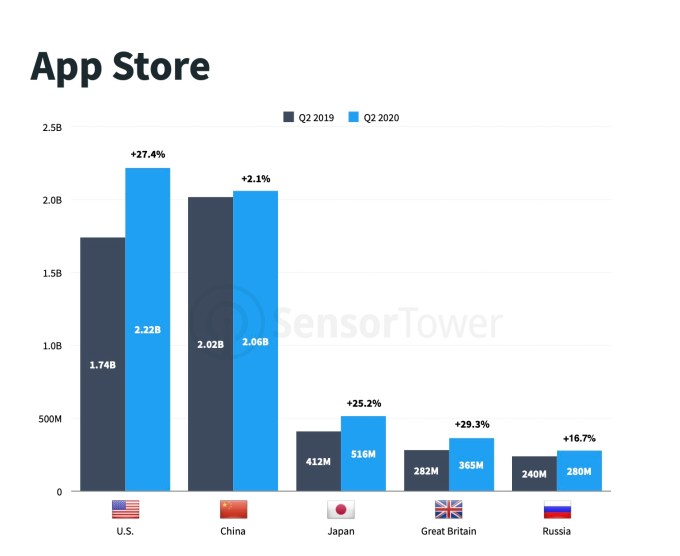
The U.S. App Store’s downloads surpassed China’s downloads for the first time since 2014. According to data from Sensor Tower’s Q2 2020 report, the U.S. App Store saw 27.4% year-over-year growth in the quarter, compared to the 2.1% growth for the China App Store. During the quarter, the U.S. App Store generated 2.22 billion new installs compared with China’s 2.06 billion downloads, to regain the top position. This then translated to the U.S. beating China on App Store consumer spend, as well.
The shift was attributed to the surge in downloads for mobile apps that came as U.S. consumers were forced to stay home under shelter-in-place orders. Leading the downloads were education and business apps, as mobile users and their families had to shift to remote work and online learning. More details are here on TechCrunch.
U.S. Federal court rules Facebook can sue mobile surveillance software makers
A federal court ruled this week that WhatsApp and its parent, Facebook, could proceed with a lawsuit against Israeli mobile surveillance software company NSO Group. Facebook last October had filed a complaint alleging that NSO Group exploited an audio-calling vulnerability in WhatsApp to send malware to about 1,400 mobile devices, which then extracted messages, browser history and contacts from phones. NSO Group argues it has previously been granted immunity from U.S. lawsuits about its dealings with foreign governments, which uses its technology to fight terrorism, under the Foreign Sovereign Immunity Act (FSIA).
Messenger adds Screen-Sharing feature
Image Credits: Facebook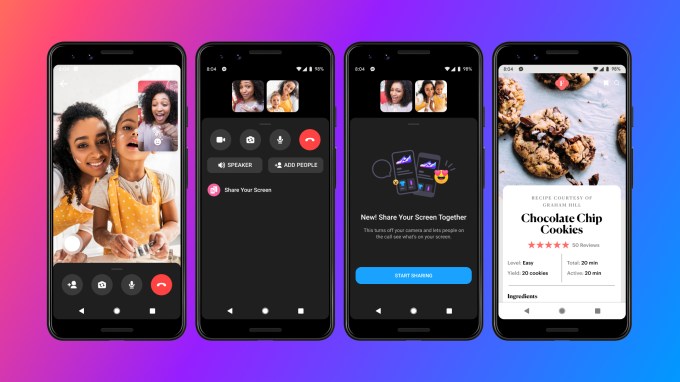
Facebook Messenger may be better known for casual conversations among friends and family, but its latest feature borrows from more professional business communication apps. The mobile messenger this week introduced screen-sharing on iOS and Android — meaning you no longer need a desktop or web app to share your screen. Instead, in a video call, you can use screen-sharing to do things like scroll through your photos, use social media apps together (like Instagram, of course) or go online shopping (which you can also do in Instagram — see below). Screen-sharing will also now support up to 16 users in Messenger Rooms on web and desktop, as well.
Instagram launches new Shop, nears U.S. launch of Reels
Image Credits: Instagram
Instagram is making some changes. The company had already begun testing swapping the Activity tab for a Shopping icon. Now, it’s rolling out its newly redesigned Instagram Shop, too. The Instagram Shop is described as a place to browse products from favorite brands and creators, as well as curated collections published by the Instagram-run @shop account. Users can also now check out directly with Facebook Pay on their purchases.
In addition, Instagram confirmed on Thursday it will bring its TikTok rival, Reels, to the U.S. next month.
The company expects to bring the new video feature — which is designed specifically for short-form, creative content — to its platform in early August, a spokesperson said. The U.S. launch comes shortly after Reels’ arrival in India this month, following a ban of TikTok in that market. Reels has also been tested in Brazil, France and Germany. The U.S. won’t be the only country to see Reels’ arrival, but Instagram didn’t say which other markets are on the list.
Image Credits: Instagram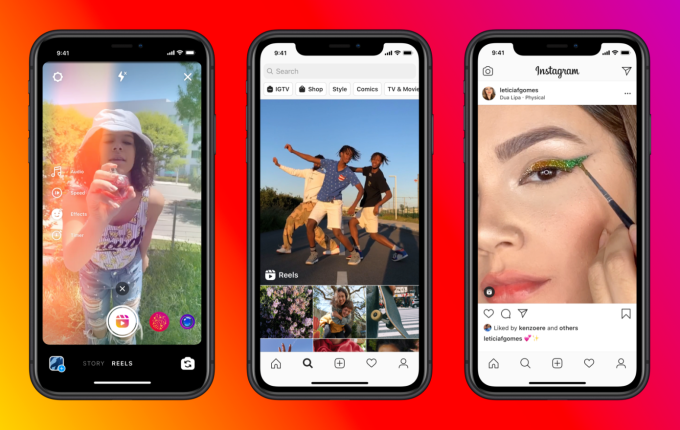
The move to more quickly roll out Reels to more markets comes as TikTok has come under intense scrutiny for its ties to China. India banned the app, along with 58 other mobile applications designed by Chinese firms, in June. The Trump administration more recently said it was considering a similar ban on TikTok, for reasons related to national security. This week, it said such a decision could be just weeks away.
Meanwhile, Rep. Stephen Lynch, chairman of the subcommittee on national security, sought assurances from both Apple and Google this week that they would warn users about applications that are developed, operated or owned by foreign entities and could pose privacy risks to Americans.
Instagram has a real chance at scooping up millions of users around the world if TikTok is removed in more markets outside of India. Already, India’s Roposo, a TikTok rival, says it has seen as many as 500,000 new users joining its app every hour since the ban, and expects to have 100 million by month’s end. Meanwhile in the U.S., Snapchat is testing out a more TikTok-like way to scroll videos.
Apple accused of censorship over Hong Kong pro-democracy app
Apple is accused of denying an App Store release to a pro-democracy app PopVote, a voting platform designed by protest organizers, which also works on Android. While Google Play quickly approved the release, Apple rejected the app for issues with the code. The issues were fixed and the app was resubmitted, but never approved. Developers were unable to reach anyone at Apple about the delay, either.
Hong Kong is still fighting back against the draconian national security law imposed last month by Beijing. Over the past weekend, more than 600,000 voted in the opposition’s primaries, according to Quartz, which broke news of the censored app. The unofficial election had served as a protest against the new law. Local officials had warned that the democratic polls could be illegal, which is why PopVote believes it has been censored and not merely delayed.
Google sued for tracking users in apps via Firebase
Google is being sued for tracking user activity through hundreds of thousands of apps, even after users opted out of information sharing. The suit specifically complains that Google tracks users’ app activity through the Firebase SDK, which can log “the user’s interactions with the app, including viewing content, creating new content, or sharing content.”
App Annie launches ad analytics
Image Credits: App Annie
App Annie is building on last year’s acquisition of analytics company Libring with this week’s launch of a new version of Libring, TechCrunch reported this week. The new product is rebranded as App Annie Ascend and aims to reach a different market, including game publishers and others on the supply side of the ad industry, for example. The launch arrives just as Apple introduced a new way for users to limit ad tracking, which opens up a market for third-party providers of this data. Ascend uses hundreds of connectors to pull data from platforms like AdColony, Unity and Chartboost, allowing customers to see these data sets “side by side.” Reddit and Jam City are among Ascend’s early adopters.
Nextdoor makes it easier to donate to local nonprofits
Neighborhood social networking app Nextdoor has made it easier to donate to local nonprofits with the launch of its new “Sell for Good” feature. The option allows users to sell items on the platform, for example on the For Sale and Free section, then donate the proceeds. The option gives community members other ways to raise funds and saves them a trip to Goodwill, too.
New emoji are on the way
Image Credits: Google
New emoji are arriving on iOS and Android in 2020. For World Emoji Day on Friday, Apple and Google showed off how their respective platforms have designed the new characters. Emojipedia has a first look at Apple’s new emoji, like the ninja, boomerang, piñata and bubble tea, among others. Tim Cook also tweeted a video of the new Memoji. Google shared its plan to bring 117 new emoji to Android 11 this fall, as well as an update to its Gboard app that makes it easier to pick an emoji.
With new headwear options and masks in iOS 14 — we’ve got you covered! Happy #WorldEmojiDay! pic.twitter.com/AqQp0QVefV
— Tim Cook (@tim_cook) July 17, 2020
Funding and M&A
- Istanbul and Berlin-based startup Meditopia, which has become a top meditation app in non-English speaking markets, raised $15 million in Series A funding co-led by Creandum and Highland Europe.
- Lo-fi, text-based social app for queer women, Lex, raised $1.5 million from in seed funding from Corigin Ventures, X-Factor Ventures, Tusk Ventures and various angels. The app offers text-based personal ads as an alternative to mainstream dating apps.
- Google invests $4.5 billion in India’s Reliance Jio Platforms, India’s largest telco, in order to develop a low-cost smartphone to bring new mobile users online. The phone will run a modified version of Android OS and the Play Store. The deal is unusual for the fact that Google and Facebook have invested in the same business. Facebook is the largest minority stakeholder, with a 9.99% share.
- Robinhood raised $320 million more for its stock trading app, bringing its latest round to $600 million. The app is now valued at $8.6 billion.
- SiriusXM bought podcast app Stitcher from E.W. Scripps in a deal worth up to $325 million. SiriusXM previously acquired Pandora for $3 billion.
Mozilla’s VPN for Android
Image Credits: Mozilla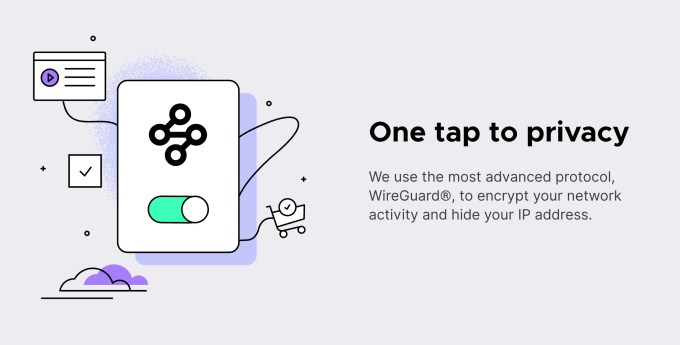
Mozilla’s new VPN app has launched on both Windows and Android this week, after having previously run a pilot program to test the software. The cross-platform app has since been rebranded as Mozilla VPN and is available for $4.99/mo in the U.S., Canada, the U.K., Singapore, Malaysia and New Zealand, to start. iOS, Mac and Linux aren’t yet available, but the latter two are in development. The iOS app was included in the pilot but didn’t launch. Unlike many VPN apps, Mozilla’s generates revenue only through its subscriptions — not selling user data, it claims. However, because of its requirement to signup with a Firefox account, users will have to share their email, location and IP address with the service.
Brief
Image Credits: Brief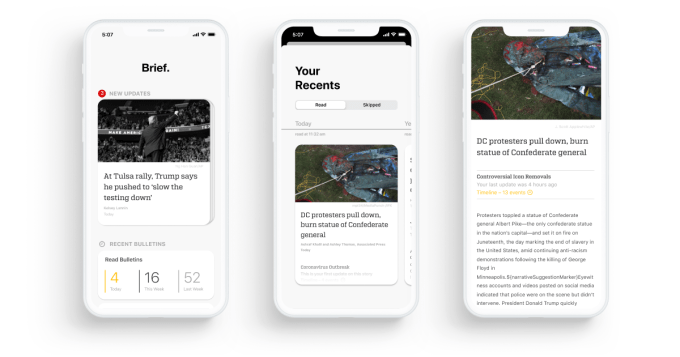
Founded by former Google engineers, Brief is a newly launched news app that aggregates and summarizes the news in hopes of tackling a number of problems with today’s news cycle, including information overload, burnout, media bias and algorithms that prioritize engagement over news accuracy. The app uses a format that involves short summaries, timelines and key quotes to balance reporting from both sides, while keeping the information flow minimal and the data un-personalized so as not to cater to the reader’s bias.
Tweet of the Week:
Apple Beta Seed Cycle:
Beta 1: denial
Beta 2: anger
Beta 3: bargaining
Beta 4: depression
beta 5+: acceptance
— Daniel Yount (@dyountmusic) July 17, 2020

